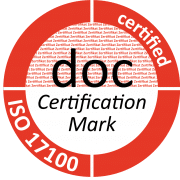The German Mittelstand – a cut above the middle?
We’ve been hearing a lot about the advantages of the Mittelstand, especially during the coronavirus pandemic. What’s that all about? EnglishBusiness provides a short explanation.
The German Mittelstand: a cut above the middle
“Mittelstand” is a German term that connotes much more than its dictionary meaning. Like other German words with no direct English equivalent (think wanderlust, zeitgeist, angst and wunderkind), we also use “Mittelstand” in English: the Oxford English Dictionary defines it as the medium-sized companies in a country, viewed as an economic unit. Oxford’s example: “There is a growing political consensus on the need to improve the flow of finance to the Mittelstand.”
The media sometimes give readers the impression that Germany’s economic landscape is made up entirely of large companies. In reality, 99.5 per cent of all German companies belong to the mid-size sector – more than in any other industrial nation.
So what exactly is the Mittelstand?
The answer is that there is no single, clear-cut definition. The European Commission uses it in reference to small and medium-sized enterprises (SMEs). To be precise (because this is Germany), companies with a maximum of 249 employees and a turnover of up to €50 million or a balance sheet total of up to €43 million are part of the Mittelstand. These figures are used to draw international comparisons between countries and as a reference for EU aid schemes regarding decisions on EU funding for companies. Others, including the German federal government, define SMEs differently. Based on the definition provided by the Institute for Mittelstand Research in Bonn (IfM), enterprises with up to 500 employees and an annual turnover of no more than €50 million are considered to be SMEs. In this definition, the companies’ balance sheet total is irrelevant. If you want to really have fun picking apart data on the German Mittelstand, here are the statistics (in German).
Mittelstand companies have a Mittelstand mindset
Mittelstand companies can also be understood on a qualitative level by their combination of management with ownership. Based on this definition, the terms Mittelstand, family business, owner-managed business and family-owned company are synonymous. This means that medium-sized companies and family businesses frequently intersect with independent SMEs. Independent companies with 500 or more employees or annual sales of more than €50 million are also part of the Mittelstand if they are family- or owner-operated. Small and medium-sized enterprises that are dependent on another company are not part of the Mittelstand.
The German government provides an excellent website that describes the Mittelstand “brand” and sets out the advantages and challenges of the model. Advantages: Mittelstand firms tend to pursue long-term human resources policies and invest in their staff, even when faced with a tough global economic environment. The German Mittelstand is known for delivering continuity and dynamism. It provides much of the economic and social stability enjoyed in Germany and contributes to low unemployment rates among young people.
Photo credit: rawpixel.com
Challenges for Mittelstand companies
Challenges to the Mittelstand/SMEs are posed by demographic change and issues of modernisation and digitalisation. Demographic change means that securing skilled labour is not always easy. There are fewer young people available to take on jobs, and many Mittelstand companies are now recruiting refugees for vocational training and work. Then there is the bureaucratic hurdle: German companies have a reputation for being unwieldy and mired in red tape. SMEs are pressing ahead with efforts to put a brake on bureaucracy, to modernise public procurement and to reduce the cost of compliance with regulations for companies. The government is attempting to tackle SMEs’ frequent modernisation difficulties by supporting digitalisation in the skilled crafts sector: there are 25 government-run “Mittelstand 4.0” centres of excellence based throughout the country.
You can tell that the concept of the Mittelstand is of national significance when you realise the Germans even jazz up what one might suppose to be a somewhat dull economic concept by awarding a number of yearly Mittelstand prizes at gala ceremonies.
EnglishBusiness AG is an independent, owner-managed business that is run family-style – and is therefore firmly in the Mittelstand camp. As businesses address societal changes and global challenges including digitalisation and demographic change, they need to be ready to develop innovative responses and sustainable solutions. Your company’s future competitiveness depends on your present ability to innovate and communicate. EnglishBusiness employs experts in cross-cultural knowledge transfer who can help your company improve its understanding of global business practices. Contact us today to find out how our tailored seminars and expert translation and editing services can help you bolster your international communication.















